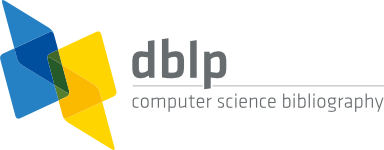SPECIAL ISSUES
[CLOSED]Efficient Resource Allocation and Management in Fog Computing for IoT
2023.10.18
Efficient resource allocation and management in fog computing for the IoT is an essential factor in ensuring optimal performance and scalability within this dynamic computing paradigm. With the proliferation of IoT devices and the exponential growth of generated data fog computing has emerged as a promising solution to handle the increasing computational and storage demands at the edge of the network. Fog computing enables data processing and analysis closer to the IoT devices reducing latency and enhancing real-time decision making. However, the limited resources available at the edge like processing power, storage capacity, and energy necessitate efficient allocation and management to ensure optimal utilization. Efficient resource management in fog computing also involves effective data placement strategies. IoT generates vast amounts of data that need to be stored and processed efficiently. Implementing data caching mechanisms where frequently accessed data is stored closer to the edge, reduces latency and enhances responsiveness. Moreover, intelligent data replication techniques ensure data availability, fault tolerance, and optimized resource utilization.
Dynamic workload distribution, adaptive resource provisioning, intelligent data placement, and energy conservation techniques play vital roles in maximizing resource utilization while meeting application requirements. Embracing advanced analytics and machine learning enables intelligent decision-making for optimal resource allocation. As fog computing continues to evolve, efficient resource management remains a key area of focus to unlock the full potential of IoT applications in diverse domains. Furthermore, energy efficiency is a crucial consideration in resource management for fog computing. IoT devices often operate with limited power by making energy conservation more essential. Fog nodes can employ techniques such as task offloading, where computationally intensive tasks are offloaded to nearby nodes with more resources by utilising reducing energy consumption at the device level. The Special Issue aims to provide a comprehensive overview of recent advancements, identify open research problems, and propose novel solutions in this domain. We aim to bring together researchers and practitioners from academia and industry to exchange ideas, share their findings, and contribute to the advancement of this field.
 SUBJECT COVERAGE
SUBJECT COVERAGE
Related Topics:
- ● Collaborative resource management approaches for improving performance in fog computing systems.
- ● Resource allocation techniques for real-time and mission-critical IoT applications in fog computing.
- ● QoS-aware resource allocation algorithms for latency-sensitive IoT applications in fog computing.
- ● Edge intelligence and analytics for efficient resource allocation in fog computing environments.
- ● Federated learning and distributed resource management in fog computing for IoT.
- ● Integration of blockchain technology for secure and transparent resource allocation in fog computing.
- ● Dynamic workload balancing and scaling techniques for fog computing in IoT environments.
- ● Lightweight encryption and authentication mechanisms for secure communication in fog computing.
- ● Resource management for fault tolerance and reliability in fog computing for IoT.
- ● Virtualization and containerization approaches for resource allocation and management in fog computing.
- ● Benchmarking and performance evaluation of resource allocation techniques in fog computing for IoT applications.
 SUBMISSION GUIDELINE
SUBMISSION GUIDELINE
Papers must be submitted to the Manuscript Link service - https://www.manuscriptlink.com/journals/jips.
It is important that authors should select "JIPS Survey / Special Issue" and " Efficient Resource Allocation and Management in Fog Computing for IoT" when they reach the "Basic Information" step in the
submission process. Before submitting papers, you need to read the JIPS submission guideline.
 Notification of APC
Notification of APC
US $890 or KRW 940,000
- Additional Fee: KRW 100,000 (US$100) per page (within 4 pages)
- Remark: The size must be within 11 pages including a photo and a profile (refer to the sample paper format).
 GUEST EDITORS
GUEST EDITORS
Dr. Anwar Ghani
International Islamic University, Islamabad, Pakistan.
Email: anwar.ghani@iiu.edu.pk, dr.anwarghani1@gmail.com
Co-Guest Editor Details:
Dr. Shehzad Ashraf Chaudhry
Department of Computer Science and Information Technology College of Engineering
Abu Dhabi University, Abu Dhabi, UAE Department of Computer Engineering,
Faculty of Engineering and Architecture, Nisantasi University, Istanbul, Turkey.
Email: ashraf.shehzad.ch@gmail.com,
Dr. Rashid Ahmad
Department of Computer Science,
COMSATS University Islamabad, Attock Campus, Pakistan.
Big Data Research Center, Jeju National University,Jeju, Republic of Korea.
Email: rashid.ahmad@ciit-attock.edu.pk
 Important Dates
Important Dates
- - Submission Deadline: 5th March, 2024
- - Authors Notification: 15th May, 2024
- - Revised Version Submission: 30th July, 2024
- - Final Decision Notification: 5th September, 2024









